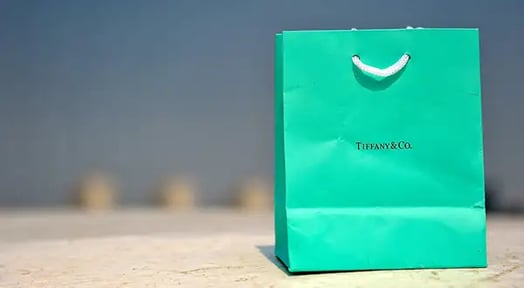Ultra-luxury jeweler Tiffany & Co. just signed a partnership with Chinese e-commerce giant Alibaba that will put Tiffany’s 14 karat gold necklaces on a platform alongside fidget spinners and counterfeit AirPods.

Initially resisting the allure of e-commerce, Tiffany’s decision to play ball with ’Baba is proof that Alibaba’s aggressive courtship of luxury retailers is beginning to pay off.
From protest to partnership
Until recently, Tiffany was one of many luxury brands to boycott e-tailers like Alibaba and Amazon for failing to crack down on counterfeiting.
When Alibaba joined the International AntiCounterfeiting Coalition 2 years ago, Tiffany, Gucci, and other lux-tailers dropped out because, in the words of a Michael Kors rep, Alibaba’s admission gave “cover to [luxury retail’s] most dangerous and damaging adversary.”
But now, Tiffany & Co. has caved to the inevitability of Alibaba and its e-commerce accomplices, joining Big ’Baba’s new ‘Luxury Pavilion’ to gain access to the growing Chinese luxury market.
The ‘gateway to China’ is open for business
After pulling in $25B in the world’s biggest IPO in 2014, Ali-B has focused on attracting foreign brands by positioning itself as the ‘gateway to China.’ Last year, Alibaba launched its invite-only Luxury Pavilion, hoping to cater to affluent Chinese yuppies.
The platform quickly attracted Burberry, Maserati, Hugo Boss, and La Mer, and now Tiffany — positioning the company to succeed in a challenging luxury market that has proved elusive even to Amazon.
